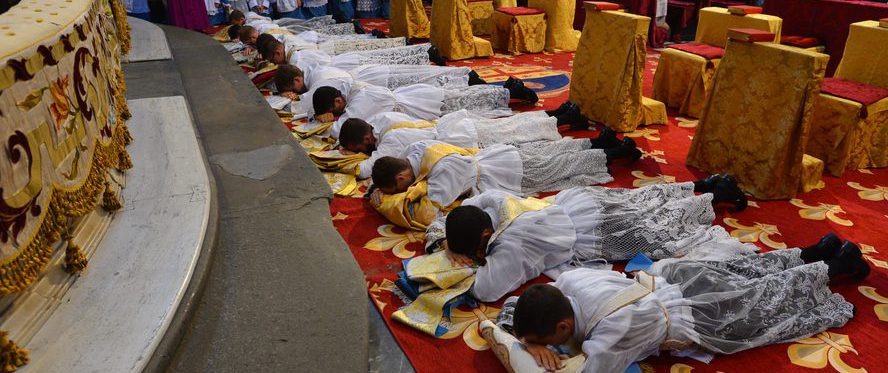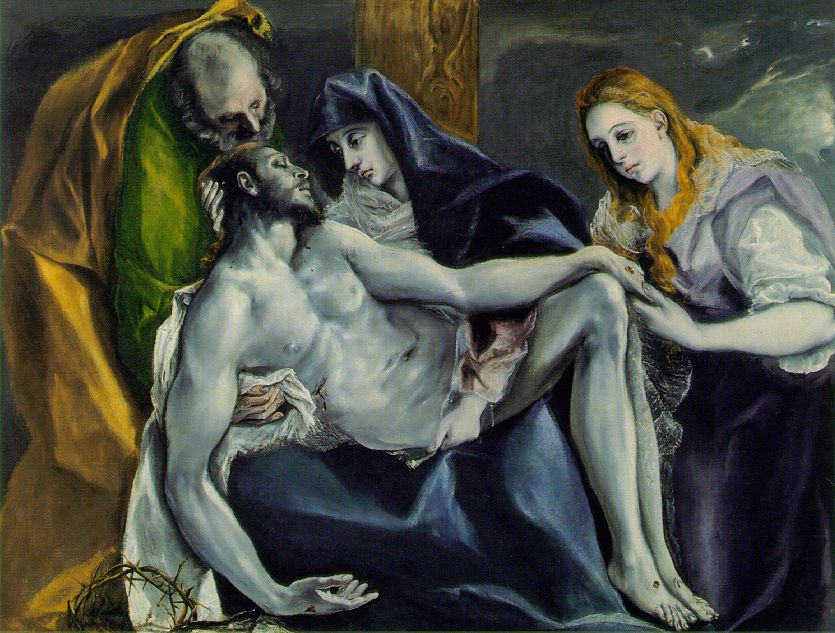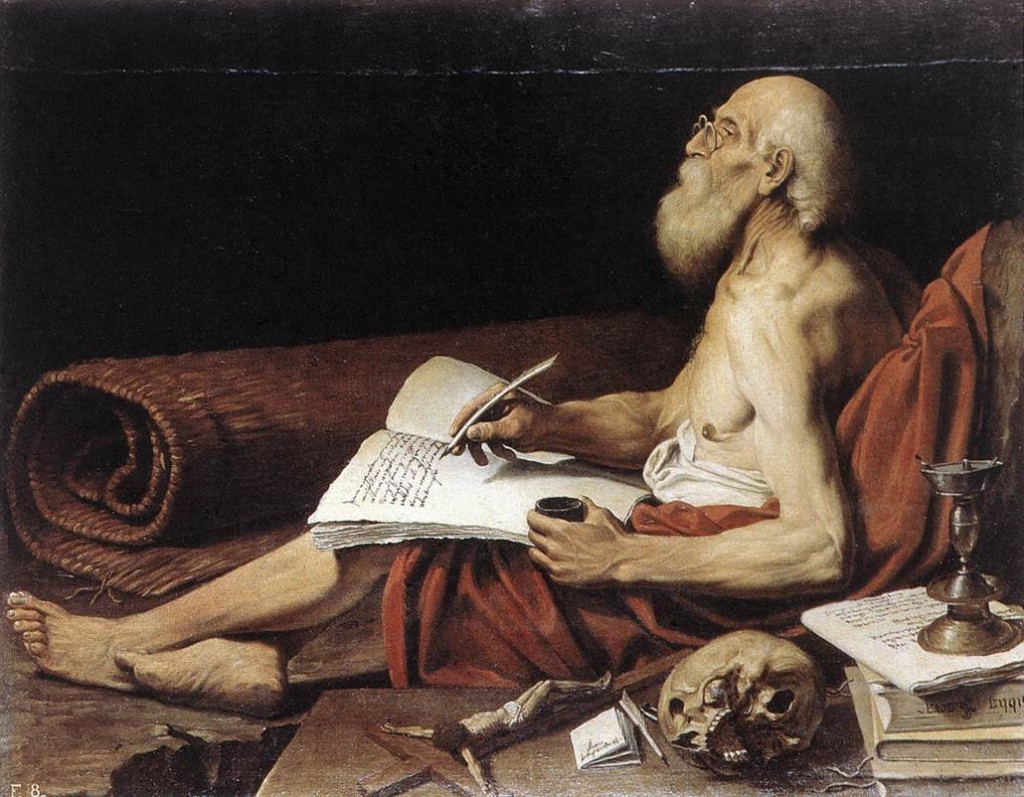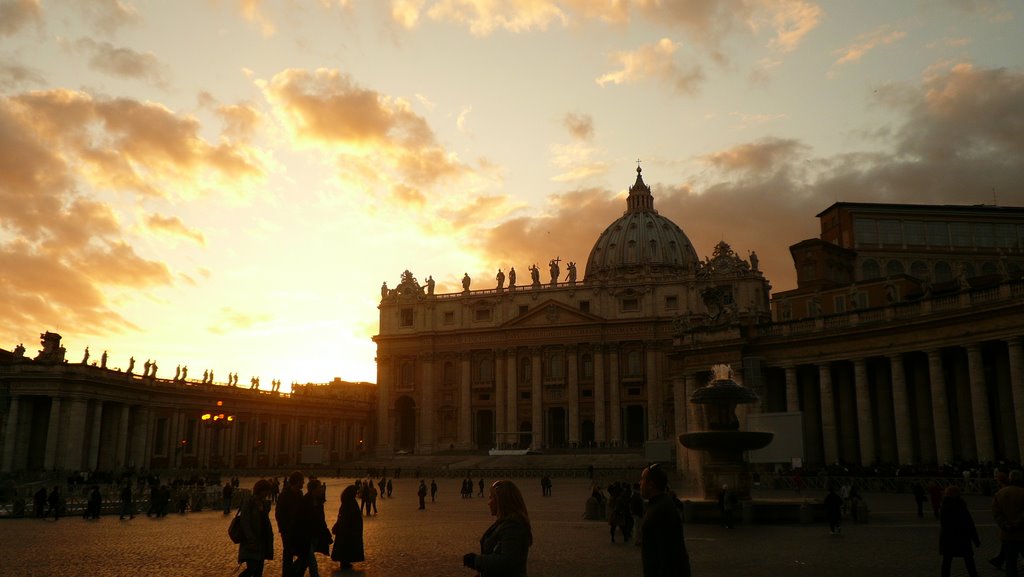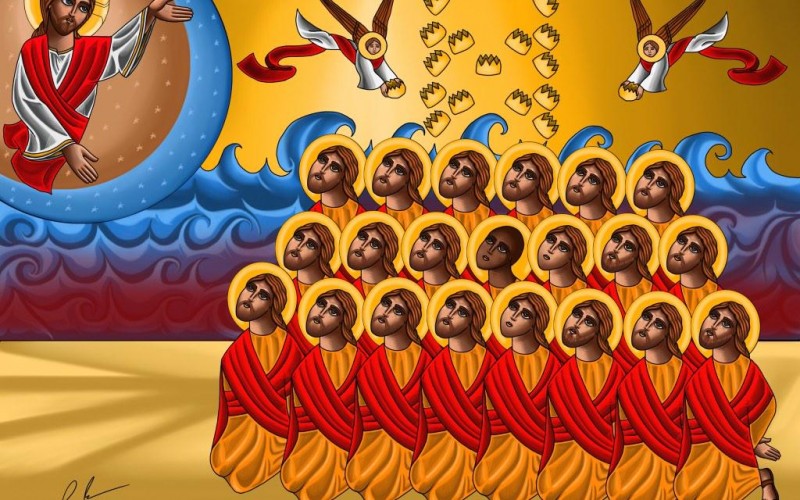7 Priest-Myths Unveiled
Myth #1: A priest can give you permission to skip Sunday Mass if you had a very busy weekend (for example, a Saturday wedding.) Truth: Sunday Mass is part of the Third Commandment. A priest can not dispense you from God’s commandments. No sooner could a priest give a frisky married man a dispensation on the 6th commandment for his travels than he could give a person a dispensation for fulfilling a matter of Divine Law. I blogged recently on the different levels of authority here. If you are sick or having a baby or travelling (i.e Mass would be impossible) then there is no sin in missing Sunday Mass. In that case, you don’t need a priest to give you a dispensation. It stands in Canon Law for you to be honest but generous before God. Can. 1245 Without [...]
18th Sunday After Pentecost
Sunday homily on the true power of good confession.
Sacred Heart in the Eucharist
One of the reasons I love the Traditional Latin Mass is because the Collect (the beginning prayer to God after the Introit and the Kyrie) usually links heaven and earth. For example, the collect of the votive Mass of St. Joseph reads: Oh God, who in Thine unspeakable Providence didst vouchsafe to choose blessed Joseph for Thy most holy Mother’s spouse, grant we beseech Thee, that we who revere him as our protector upon earth, may become worthy to have him for our intercessor in heaven. I have wondered for a few years why the old Mass always ties heaven to earth in the opening prayer. It has to be for more than saccharinely-sweet reasons of saintly piety. It is probably because the prayers of everyone are collected and given to the Blessed Trinity through the sacred humanity of Jesus Christ [...]
Seven Sorrows of Mary
Kibeho, Rwanda, where Mary appeared in 1981 in a Vatican-approved apparition, preaching (among many things) the renewal of the ancient 7-sorrows Rosary.
17° Sunday After Pentecost
..."to turn the hearts of the fathers to the children."—Luke 1:17
On the Importance of Study
A talk I gave to a men's group in Louisiana last night.
Catholics and iPhones
Leisure: The Basis of Culture is a book written by Josef Pieper, a 20th century expert on St. Thomas Aquinas. In this book, Pieper demonstrates that a Christian civilization can not be sustained by technology and production as seen in Protestantized countries like Germany. On the southern and more Catholic side of Europe, we see how Italy and Spain close down business for afternoon siestas. Although Italy and Spain are less and less Catholic every year, they retain some aspects of what was once a Christian culture, namely, leisure. For Pieper, leisure is not laziness but an ability to enjoy the good things of life via contemplation and community. This includes God and family. His book has wide appeal to liberals and conservatives. In our slavish age of ironic isolation amidst so much technology, everyone knows that being able to relax with friends or family and a [...]
16° Sunday After Pentecost
Is the Christian called to Inspiration or Relevance? We look to St. Theresa of Kolkata to understand today's Gospel, Luke chapter 14.
15° Sunday After Pentecost
Who caused the crisis in the Church? I did. "I hereby commit to staying engaged with the suffering of the world, as long as I am alive and as much as I am able. I commit to this because on the cross no tear is cried in vain, no ache in the heart is unfruitful. If I will gaze, wide-eyed, at the suffering of the world AND lean in, I will begin to learn what it is to be human, and I will see Jesus. And there is no other way of being a Christian for me anymore. None whatsoever. If I don't suffer with/for the world I might as well quit. If I believe the Gospel—if Jesus really did come to heal me and the whole human race—then I commit to being a vessel of that healing. His mercy [...]
A World That Runs on Sacrifice
We Christians tend to see the crucifixion as a horrible event, and the resurrection as that which rectified everything. This is actually true. It is totally true, in fact. But there’s a mysterious line in Revelation that seems to say that something of the crucifixion precedes even creation itself. Revelation 13:8 speaks of Jesus Christ as "the Lamb who was slain from the foundation of the world." There are many translations but I think this is the best translation considering the Greek ἀρνίου τοῦ ἐσφαγμένου ἀπὸ καταβολῆς κόσμου, translated by St. Jerome as agni qui occisus est ab origine mundi. What does it mean that the Lamb was slain from the foundation of the world? Didn’t He die out of love for us sinful humans? Yes, but the pattern of self-emptying is the very life of the Blessed [...]
